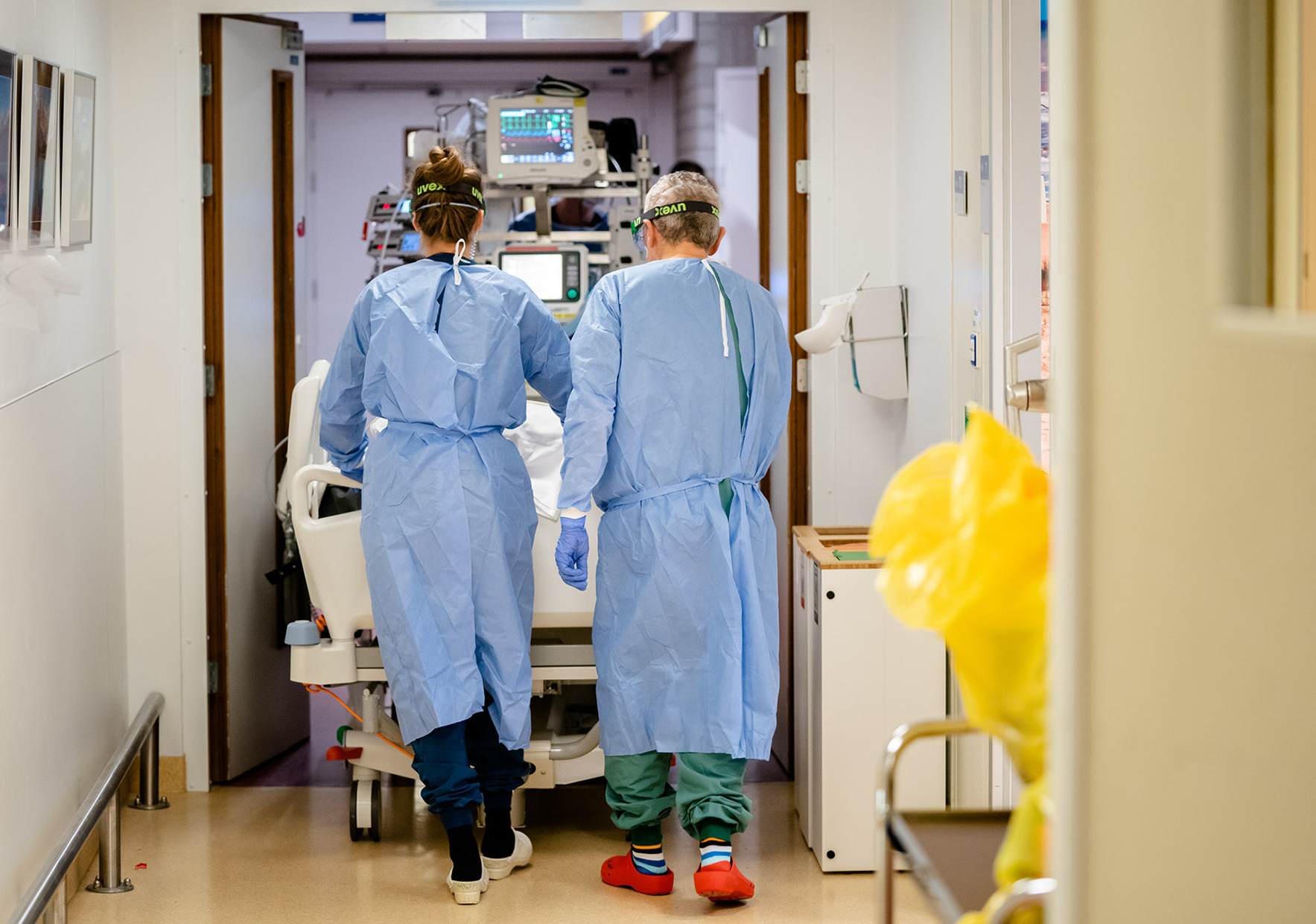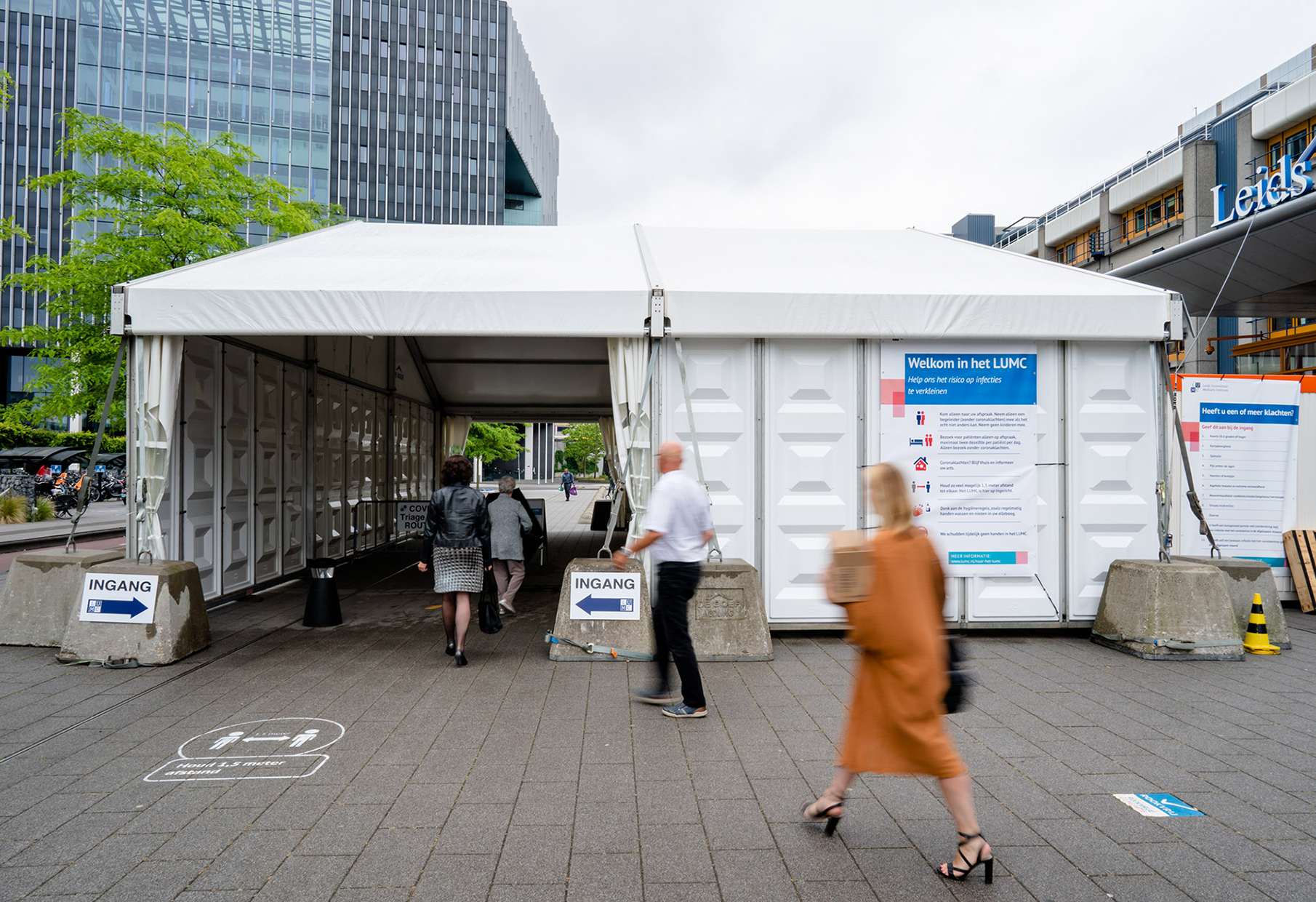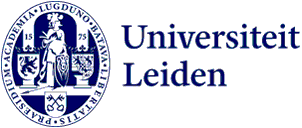
A university in times of corona: one year on
It is exactly one year ago that the university had to close, bang in the middle of the academic year. Suddenly, on that third Monday in March, we found ourselves at home, working and studying online – many of us from that cramped attic or student room. The momentous coronavirus year in pictures.
Worries about catching that mysterious coronavirus, repatriating students from abroad and the university building closing: the university’s Central Crisis Team has been working day and night since March 2020 to steer the university through the crisis. And the situation has been changing all the time. On 9 March the advice was ‘don’t shake hands’, so not at the university either. On 12 March the government announced much more drastic measures: everyone had to work from home where possible and universities were urged to switch to online teaching. A gigantic operation for the students and staff.

After a week of hectic preparations, the first online classes began. No mean feat, particularly for lecturers whose children were now at home too and in need of help. And all of a sudden, our meetings were in Teams. ‘Can you hear me?’ In the coronavirus updates our 31,000 students and 7,100 staff members could read about what they could and couldn’t do. And with his vlogs rector Carel Stolker offered the students and staff much-needed words of encouragement.

Impact on research
Many research projects became delayed with researchers now unable to go to their labs and offices, and studies involving test subjects being halted. Much of the fieldwork and observations was also cancelled. All the manned telescopes in the world were at a standstill for some time, and many international conferences and in-person events were cancelled, although some did go ahead online at a later date. This made it clearer that in the post-coronavirus world we won’t necessarily need to board a plane to a distant location to attend an international conference.

Radically different student life
Studying by your lonesome, cancelled internships and no semester studying abroad. All of a sudden student life was radically different and students had to miss many of their social contacts. The associations were closed and all parties and events were cancelled. Fortunately, the associations were creative in coming up with online alternatives. At some point, study in the library became possible again, to a limited extent, as did practicals and study support at the university.

A hybrid EL CID and HOP
With some restrictions being eased in the summer, introduction weeks such as EL CID and HOP in The Hague could go ahead partly online and partly in person, but obviously at a distance of 1.5 metres.

Open days
The open days at the university were fully online, which also had its advantages because more prospective students could attend. Instead of in Pieterskerk, thousands of participants met on a digital platform and, with the aid of interactive live presentations, plenty of chat options and 360-degree videos, could get a good impression of the degree programmes and city.

Graduation, PhD ceremonies and inaugural lectures
Ceremonies such as graduations, PhD ceremonies and inaugural lecture were largely online too. Despite the coronavirus crisis, the number of PhDs awarded in 2020 was 447, exactly the same number as in 2019. The odd PhD ceremony or inaugural lecture could go ahead in person, with face masks and a very limited number of attendees.

Visiting politicians
In these times of coronavirus, guests visit online. Minister for Education Van Engelshoven paid one such visit in October and Prime Minister Rutte even popped in twice online. Hundreds of law students followed his guest lecture ‘The European Union in times of coronavirus’ via a livestream and Rutte also showed his face at a meeting with the deans.

Dies Natalis
A mini-cortège, consisting only of the Executive Board, walked through the snow on 8 February to a Pieterskerk that had never been so empty on a Dies Natalis. Via a livestream the university community watched as rector Carel Stolker retired and the new rector Hester Bijl placed the chain of honour around her own neck, in Covid-secure fashion. Annetje Ottow became the new president of the Executive Board. Annual lectures such as the Huizinga Lecture and the Cleveringa Lecture could also be wathced online.

Leiden contribution to coronavirus research
During the coronavirus crisis researchers have been doing their bit to fight the virus and explain the pandemic in the news. Legal scholars have been researching privacy rules relating to Covid apps, governance experts have analysed the government’s crisis management, and humanities scholars have examined the impact of the pandemic on society. And last but not least: Leiden medics and biomedics from the LUMC and LACDR have been working overtime to develop vaccines and virus inhibitors. The LUMC’s #WakeuptoCorona campaign raised over one million euros, which enabled virologist Eric Snijder to set up a second lab for research into virus inhibitors and candidate vaccines. Researchers from the LUMC also tested the Janssen vaccine, which was developed in Leiden and was approved by the EMA on 11 March. A memorable year thus ends with more than a glimmer of hope!
Tekst: Linda van Putten
Fotografie LUMC: Bart Maat
-

At the LUMC – our university medical centre – this has been the reality for months already: doctors in protective clothing on the Covid wing. -

